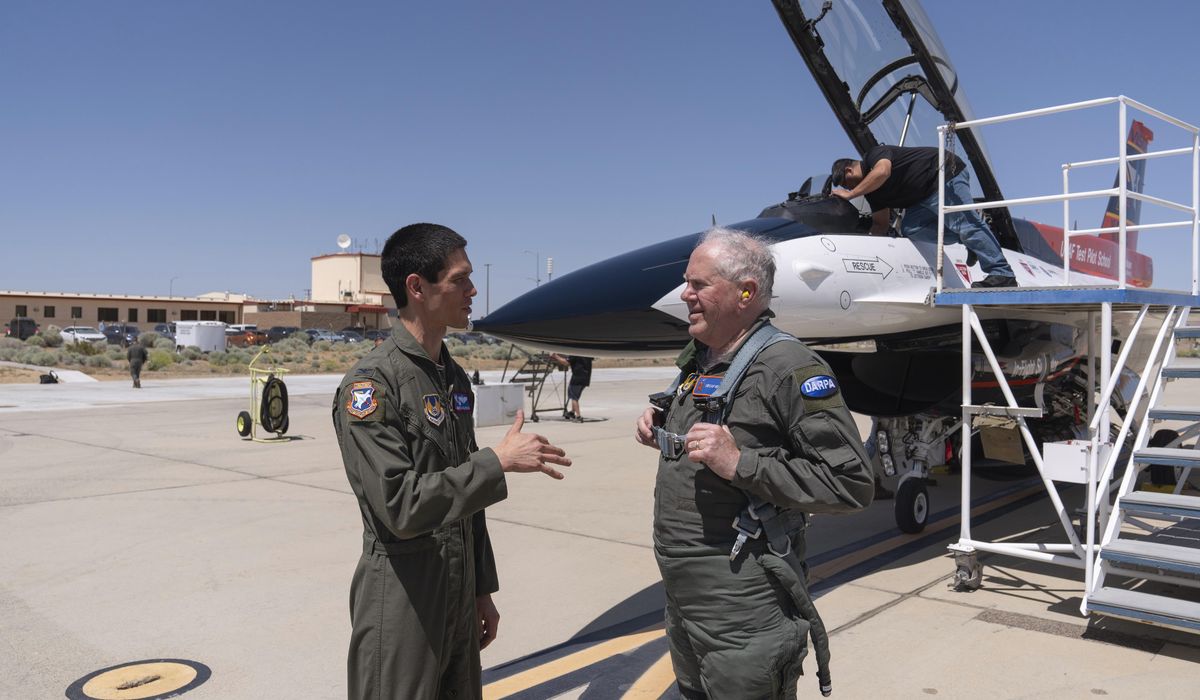


A battle between governors and the Air Force over control of some National Guard units came to a head on Capitol Hill this week, with a key House committee siding with the state executives and pushing back on the Pentagon’s controversial plan.
As part of the Pentagon budget package now making its way through Congress, Rep. Joe Wilson, South Carolina Republican, offered an amendment requiring governors to approve any transfer of Air National Guard units to the U.S. Space Force. Such transfers would have taken those units out from under the authority of governors, who traditionally have had control of Guard troops within their states.
The measure stopped short of calling for a Space Force National Guard, an idea pushed by several governors. But state leaders still praised the amendment, which cleared the House Armed Services Committee this week and attracted bipartisan support as part of the broader National Defense Authorization Act.
“National Guard assets are critical elements as states respond to a multitude of crises, and governors must maintain full authority as commander in chief of these assets to be able to effectively protect operational readiness and American communities,” Utah Gov. Spencer Cox, a Republican, and Colorado Gov. Jared Polis, a Democrat, said in a statement Thursday. The two governors serve as chair and vice chair, respectively, of the National Governors Association.
Air Force Secretary Frank Kendall’s initial proposal to shift some Air National Guard forces to the Space Force sparked strong pushback from governors of both parties. The plan, known as Legislative Proposal 480, brought together nearly every governor in the country to sign a letter last month denouncing the idea.
“This legislation disregards gubernatorial authorities regarding the National Guard and undermines over 100 years of precedent as well as national security and military readiness,” the letter said.
The governors who signed the letter said withdrawing a unit from the National Guard without the approval of a state’s governor would violate federal laws that have upheld gubernatorial authority over the units for decades. Their comments seemed to suggest that if the Defense Department went ahead with the plan, a legal fight would ensue.
The legislation, they said, also would impair the relationship between the Defense Department and state officials at a time when they need full trust and confidence in each other to meet the growing threats of strategic competition and natural disasters.
But Mr. Kendall recently told members of the Senate Appropriations Committee that the proposal would only impact about 700 National Guard members who are assigned to space-based missions. He said the current arrangement was “awkward,” as those troops technically remain part of the Air Force National Guard but in reality are working on issues related to the Space Force.
“Our preference would be to have those people become members of the Space Force and transition as the reserve people who are part of the Space Force,” Mr. Kendall told the Senate lawmakers. “We need to resolve their status.”
Mr. Kendall said transferring the personnel to the Space Force would provide them with the same stability as serving in a National Guard unit.
“They will still serve with basically the same conditions and have the same benefits and everything else,” he said. “But, they will become part of the Space Force.”
Mr. Kendall also pushed back on the idea of establishing a Space National Guard.
“We’re definitely not in favor of that. It’s too small a number of people to create a large, separate institution,” Mr. Kendall said. “It’s better for them (and) it’s better for the Space Force, certainly, if we simply move them into the Space Force as reserves. We value these people (and) we want to get this resolved.”
But much like the bipartisan opposition the proposal drew from governors, lawmakers of both parties came together to oppose the idea.
“I’ve been fighting for our National Guard members and will continue to,” Rep. Jason Crow, Colorado Democrat, said in a statement this week praising the amendment put forth by Mr. Wilson.
“This is an important step to protect our National Guard and safeguard their commitment to serve. Colorado’s guard members sign up to serve their community and nation, and that service should be respected,” he said.
While the amendment cleared the House Armed Services Committee, its long-term future is unclear. Even if it is a part of the final House version of the NDAA, it would still need to be included in the Senate version. The package also ultimately will need President Biden’s signature.
• Mike Glenn can be reached at mglenn@washingtontimes.com.
